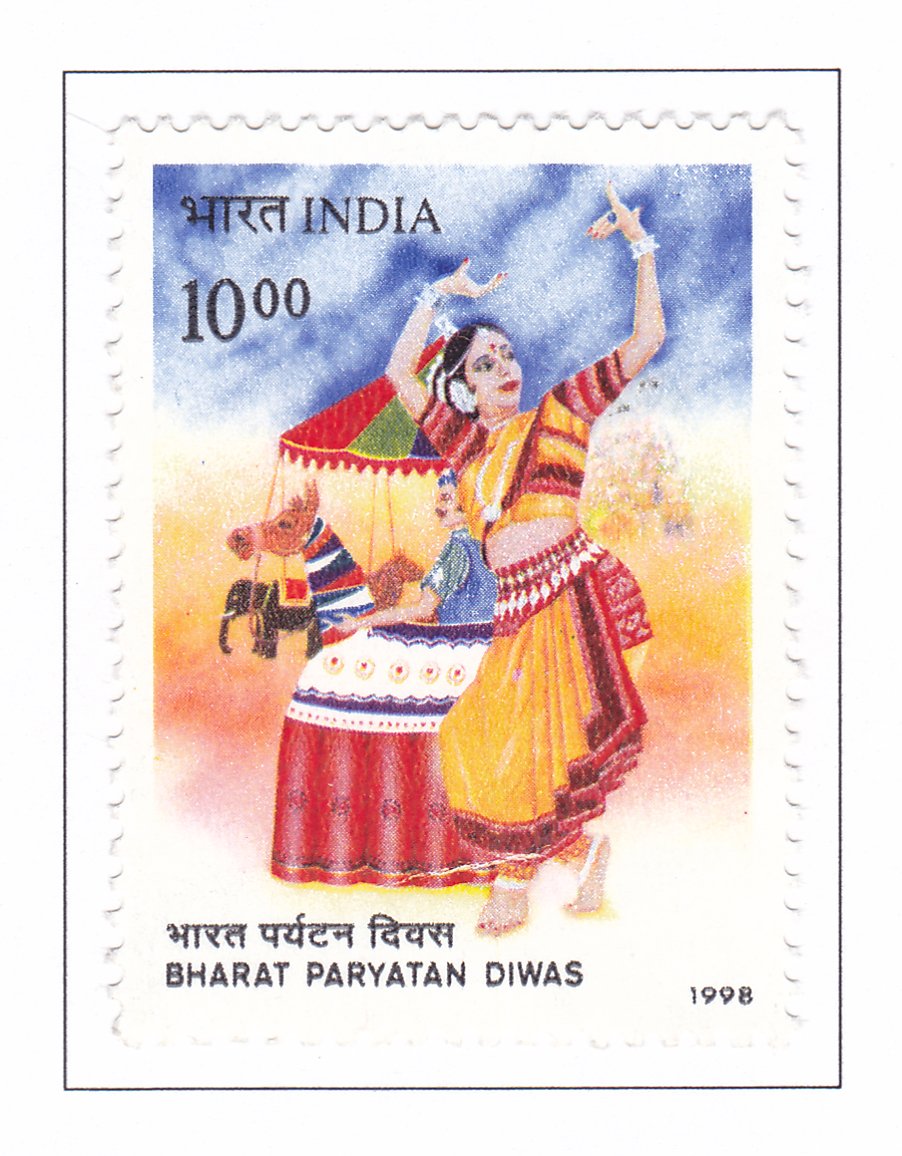India Tourism Day

Technical Data
| Date of Issue | January 25, 1998 |
|---|---|
| Denomination | Rs. 10 |
| Quantity | 700,000 |
| Perforation | comb 13 x 13½ |
| Printer | Security Printing Press, Nashik |
| Watermark | No Watermark |
| Colors | Multicolor |
| Catalog Codes |
Michel IN 1609 Stamp Number IN 1669 Yvert et Tellier IN 1376 Stanley Gibbons IN 1773 |
| Themes | Animals (Fauna) | Dance | Elephants | Mammals | Suits and Costumes | Tourism | Traditions |
Table of Contents
Commemorative Stamp: Bharat Paryatan Diwas (India Tourism Day)
Significance of Tourism in India:
- Economic Impact: Over the past 50 years since Independence, tourism has grown into a significant socio-economic sector, contributing substantially to the nation’s economy and earning foreign exchange.
- Cultural Preservation: Tourism helps in preserving traditional vocations, crafts, arts, and heritage, as well as maintaining monuments and historical sites.
- Socio-economic Benefits: It aids in preventing migration from backward areas to cities, promotes women’s advancement, and helps in fostering national integration and harmony.
Diverse Destinations:
- Natural Attractions: India boasts a range of natural landscapes including snow-clad mountains, deep blue seas, deserts, sand dunes, and expansive plains with rivers.
- Cultural Experiences: The country offers rich cultural experiences with temple monuments, fairs, festivals, and a wide variety of adventure sports such as skiing, river rafting, and trekking.
- Accommodation: From luxury hotels to heritage destinations, India provides diverse options for all types of travelers.
Historical Context:
- Recognition of Tourism: On January 25, 1966, tourism was officially recognized as a separate subject by the Government of India, marking the beginning of a more structured approach to tourism development.
Commemorative Stamp:
- The Department of Posts issued a special postage stamp on January 25, 1998, to commemorate “Bharat Paryatan Diwas” (India Tourism Day) in recognition of the role of tourism in India’s development and its contribution to national integration and cultural preservation.
